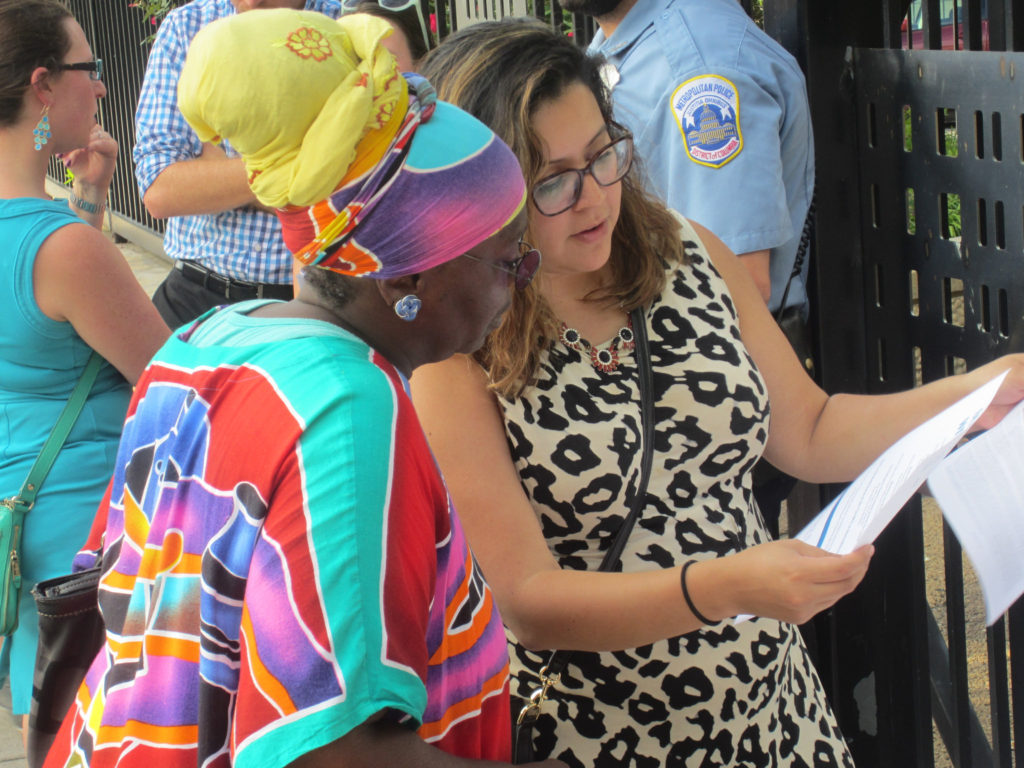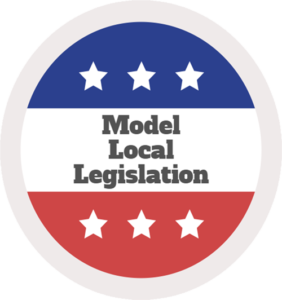
Photo Credit: Ken Martin for Street Sense
With the cost of housing far outstripping wages, millions of Americans face homelessness each year, and millions more live in tenuous or unstable housing situations. All Americans need access to affordable housing, defined by legal security of tenure, habitability, accessibility, location, cultural adequacy, and provision of any needed services. But right now, over 7 million households in the U.S. lack access to affordable housing; of this number some are forced to live in public places. At the same time, many communities have enacted or are enforcing laws that make living in public a crime. This is potentially unconstitutional, wastes precious public funds, and makes it harder for people to exit homelessness by saddling them with criminal records.
To this end, the Housing Not Handcuffs campaign presents model policies for the local, state, and federal levels to break this vicious cycle and shift law and policy away from this misuse of the criminal justice system to address homelessness and towards true solutions.
What types of proposals are included in the model policies?
Shorten Homelessness by Stopping its Criminalization
- Until sufficient affordable, safe, and decent housing is available to meet the need of homeless individuals and families, the laws, policies, and practices that prohibit or limit the use of public space by homeless people for life-sustaining activities shall be repealed, and will not be enforced or funded.
- No person shall be subject to, or threatened with, civil or criminal sanctions or harassment by law enforcement, other state actors, and/or private security personnel for moving, resting, sitting, standing, lying down, sleeping, protecting oneself from the elements, or conducting other life sustaining activities on public property or in a legally parked car.
- The right to use and move freely in places of public accommodation without discrimination based on actual or perceived housing status shall not be abridged.
- No person shall be subject to civil or criminal sanctions for soliciting, sharing, accepting, or offering food, water, money or other donations in public places.
- Personal property of homeless persons shall not be subject to unreasonable search and seizure.
Prevent Homelessness by Strengthening Housing Protections and Eliminating Unjust Evictions
- It shall be unlawful to deny housing or social services based upon an individual’s or family’s:
- Perceived or actual housing status, including lack of an address;
- Lack of rental history due to homelessness;
- Poor credit history due to homelessness;
- Source of income; or
- Status as a victim of domestic violence, sexual assault or human trafficking.
- It shall be unlawful to deny housing based upon an individual’s criminal, eviction, or credit history that is unrelated to the individual’s future ability to abide by reasonable terms of tenancy.
- Evictions without just cause shall be unlawful.
- A right to counsel shall be provided in all eviction cases.
- Any institution or system of care that receives government funds, such as prison/jail/detention, health/mental health care, and foster care, shall develop and implement a plan to discharge residents into housing.
- State level: Each state shall make birth certificates and state identification cards available without cost.
End Homelessness by Increasing Access to and Availability of Affordable Housing
- Universal protections shall be instituted such that no person need pay more than 30% of their income on rent. These shall include:
- A minimum wage indexed to actual housing costs for a given area;
- Federal level: Supplemental Security Income and Social Security Disability Insurance payments indexed to actual housing costs for a given area;
- A universal voucher program.
- A small area Fair Market Rent (FMR) shall be used to determine voucher values.
- Federal level: The National Housing Trust Fund shall be fully funded
- Local & State levels: Establish and fund local/state housing trust funds
- Surplus government property and vacant private property shall be made available, at no cost, to provide housing and/or services for homeless persons.
- Local level: In order to promote the immediate growth of adequate housing stock appropriate to meet the needs of the community:
- When need for affordable housing is greater than supply, zoning restrictions on affordable housing shall be suspended.
- For all new residential buildings, or expansions of existing developments, of a certain size, a certain percentage of the units will be reserved for persons earning 30% of area median income or less.
- Federal & State levels: Adequate housing, including supportive services, shall be provided for those exiting state care.
Access the models here:



[mashshare]




